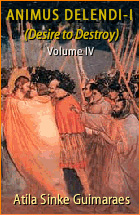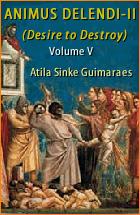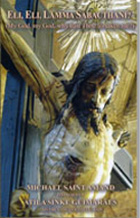NEWS: April 1, 2024
 |
 |
 |
 |
 |
 |
 |
Bird’s Eye View of the News

FRANCIS OVERRULES THE 2024 SYNOD –
In a letter to the Card. Mario Grech, Secretary of the General Secretariat of the Synod, made public on March 14, 2024 but dated February 22, 2024, Pope Francis seems to have thrown the coming Second Session of the Synod on synodality under the bus.
In fact, Francis alleged that there is no time to deal with the agenda established by the First Session (October 2023) for the Second Session (October 2024): “As it will not be possible to carry out this study by the time of the Second Session (2-27 October 2024), I am arranging for them [the topics] to be assigned to specific Study Groups, so that they may be properly examined.” (Bolletino, Sala Stampa della Santa Sede)
/bev290-Dic.jpg) Bergoglio ordered Grech to establish those groups after the latter consults with the proper Vatican organs, and then to follow them to assure they will “operate according to an authentically synodal method, of which I ask you to be the guarantor.”
Bergoglio ordered Grech to establish those groups after the latter consults with the proper Vatican organs, and then to follow them to assure they will “operate according to an authentically synodal method, of which I ask you to be the guarantor.”
Francis listed 10 important topics to be discussed by these groups until June 2025, the new date to conclude their work – “if possible.” That is, he leaves a door open for the groups to continue after that deadline.
Later in this article, I will say a word on each one of these 10 topics. Now, let me continue to analyze the political aspect of the maneuver.
After dismissing the Second Session from dealing with these topics, the Pope gave the Synod 2024 a “consolation price.” Here is how he worded the overruling: “This will enable the Assembly, in its Second Session, to focus more easily on the general theme that I assigned to it at the time, and which can now be summarized in the question: ‘How to be a synodal Church in mission.’”
So, I would say that Francis is punishing the Synod and passing on its task to the 10 study groups. Why?
Actually, soon after the 2023 Synod released its final document, we pointed out that it was an empty document (here and here). The participants of the First Session chose to remain in generalities and postponed any decisions on the topics they discussed until the October 2024 Synod. Doing this, they were able to avoid dealing with the hot topics Francis wanted them to develop – woman deacons, married priests, blessings for homo couples, Communion for the divorced, downplaying the Papacy etc. There is a good chance that they would do the same this coming October.
/bev290-Hom.jpg) Thus, Francis counter-attacked in two ways:
Thus, Francis counter-attacked in two ways:
First, he did by himself whatever he could:
In his known caudillo [dictator] style, he punishes those who dare play games with the boss.
Topics removed from the Synod
The same day that Francis’ letter to Grech became public, the latter issued an official document establishing 10 study groups, each to deal with one of the topics that Francis indicated.
Below, I will say a short word on each topic and present the particular group’s agenda.
1. Relations between Eastern Catholics & Latin Catholics
Given the large immigration of Eastern Catholics to the West, many begin to mix with the Latin Catholics. This demands some form of regularization. Since many Eastern Hierarchs are more conservative than the Western ones, Francis wants to use this regularization process to bring a greater number of Eastern representatives to Rome to make them more progressivist.
2. Listening to the cry of the poor
/bev290-Gre.jpg) This topic includes ministering to all types of the poor and “marginalized.” So, besides the rampant Liberation Theology that promotes class struggle, the homosexuals, prostitutes, feminists, etc. should be heard as well and accompanied. This study group should suggest better ways to denounce “injustices” and produce a spirituality to sustain the “victims.”
This agenda also includes hearing the “cry of the land” and caring for the “common house.”
This topic includes ministering to all types of the poor and “marginalized.” So, besides the rampant Liberation Theology that promotes class struggle, the homosexuals, prostitutes, feminists, etc. should be heard as well and accompanied. This study group should suggest better ways to denounce “injustices” and produce a spirituality to sustain the “victims.”
This agenda also includes hearing the “cry of the land” and caring for the “common house.”
3. Adapting to the digital environment
This group should suggest the theological, spiritual and canonical changes to be made in the structure of the Church to develop her “digital mission.” Among the changes to be considered is the adaptation of the existing notions of parish and diocese to the new reality. So far, these notions rely on the idea of territory and jurisdiction, but for the “digital environment” territories no longer count.
4. Revising the formation of seminarians
Seminarians should be “linked to the daily life of the communities,” without creating “an artificial ambience separated from the common life of the faithful.” Each Conference of Bishops should have its own program for seminarians. The group should suggest what aspects of the formation of priests must be “re-thought” and what can be left to the competence of the Bishops’ Conferences.
5. Theological & canonical questions on new ministerial forms
/bev290-Dea.jpg) Baptized laymen and women “should participate in the mission of the Church.” The sacrament of Orders should be considered as a service, and “problems derived from a wrong notion of ecclesial authority” should be addressed. The place of the woman in the Church and their participation in decisions and pastoral tasks must be addressed. This group should also deal with women’s access to the deaconate.
Baptized laymen and women “should participate in the mission of the Church.” The sacrament of Orders should be considered as a service, and “problems derived from a wrong notion of ecclesial authority” should be addressed. The place of the woman in the Church and their participation in decisions and pastoral tasks must be addressed. This group should also deal with women’s access to the deaconate.
6. Revision of the Bishop's role regarding religious and lay organizations
The power of the Bishop as a Lord of his Diocese must diminish to give more power to the Bishops Conference; on the other hand, more power must be given to old and new religious and lay communities such as the communist Base Christian Communities and charismatic groups. Consultations with and counsels from these groups must play a role in the final decisions of the Bishop.
7. On the ministry of the Bishops
How should the local churches enter the process of selecting their Bishop in a synodal Church? How should the Nuncio evaluate the interests of the people of God? How should the ad limina visit of the Bishops to the Pope become an exercise of collegiality? These are questions for which this study group should propose answers.
8. Role of the pontifical representatives
The local churches should be given instruments to evaluate the action of the papal representatives so that their services could become more perfect. The Bishops Conferences should also be re-thought from a synodal perspective. This group should also reassess ecclesiastical provinces with the aim of “reinforcing” the local churches.
9. Synodal criteria to resolve disputed theological, pastoral & moral questions
/bev290-Tra.jpg) This study group should “re-read” the traditional principles of human behavior, salvation and morals in order to better clarify the relationship between truth and love, as well as the doctrinal and the pastoral, in regard to disputed questions – married priests, woman deacon, homosexuality, transgenderism, Communion to the divorced, feminism etc. They should find a way to avoid simplified judgments that hurt persons and the Church.
This study group should “re-read” the traditional principles of human behavior, salvation and morals in order to better clarify the relationship between truth and love, as well as the doctrinal and the pastoral, in regard to disputed questions – married priests, woman deacon, homosexuality, transgenderism, Communion to the divorced, feminism etc. They should find a way to avoid simplified judgments that hurt persons and the Church.
10. Fruits of ecumenism
This group should study the interdependence between synodality and the primacy of the Pope with relation to ecumenical dialogues. Also, theological and canonical aspects of “Eucharistic hospitality” – communicatio in sacris or sharing the Eucharist with heretics – should be more deeply considered. Special attention should be given to “non-denominational” communities and Christian charismatic movements.
Here are the 10 points with which Pope Bergoglio wants to wipe out everything that 60 years of the Conciliar Revolution still has not destroyed.
Since we know that synodality is a code name to democratize the Church, we see that with or without the synod the Catholic Church as a Monarchy is doomed to die if her Divine King, Our Lord Jesus Christ, will not come to rescue her from this last forceful attack by her infiltrated enemies.

In fact, Francis alleged that there is no time to deal with the agenda established by the First Session (October 2023) for the Second Session (October 2024): “As it will not be possible to carry out this study by the time of the Second Session (2-27 October 2024), I am arranging for them [the topics] to be assigned to specific Study Groups, so that they may be properly examined.” (Bolletino, Sala Stampa della Santa Sede)
/bev290-Dic.jpg)
He talks about sharing power, but acts like a dictator
Francis listed 10 important topics to be discussed by these groups until June 2025, the new date to conclude their work – “if possible.” That is, he leaves a door open for the groups to continue after that deadline.
Later in this article, I will say a word on each one of these 10 topics. Now, let me continue to analyze the political aspect of the maneuver.
After dismissing the Second Session from dealing with these topics, the Pope gave the Synod 2024 a “consolation price.” Here is how he worded the overruling: “This will enable the Assembly, in its Second Session, to focus more easily on the general theme that I assigned to it at the time, and which can now be summarized in the question: ‘How to be a synodal Church in mission.’”
So, I would say that Francis is punishing the Synod and passing on its task to the 10 study groups. Why?
Actually, soon after the 2023 Synod released its final document, we pointed out that it was an empty document (here and here). The participants of the First Session chose to remain in generalities and postponed any decisions on the topics they discussed until the October 2024 Synod. Doing this, they were able to avoid dealing with the hot topics Francis wanted them to develop – woman deacons, married priests, blessings for homo couples, Communion for the divorced, downplaying the Papacy etc. There is a good chance that they would do the same this coming October.
/bev290-Hom.jpg)
Above, Fr. James Martin performs a blessing of a homo couple the day after Fiducia supplicans
First, he did by himself whatever he could:
- He allowed blessings for homo couples with Fiducia supplicans;
- He is giving minor orders to women and admitting the possibility of deacon women (here,
here, here and here);
- He is promoting married priests as much as he can (here, here, here and here).
In his known caudillo [dictator] style, he punishes those who dare play games with the boss.
Topics removed from the Synod
The same day that Francis’ letter to Grech became public, the latter issued an official document establishing 10 study groups, each to deal with one of the topics that Francis indicated.
Below, I will say a short word on each topic and present the particular group’s agenda.
1. Relations between Eastern Catholics & Latin Catholics
Given the large immigration of Eastern Catholics to the West, many begin to mix with the Latin Catholics. This demands some form of regularization. Since many Eastern Hierarchs are more conservative than the Western ones, Francis wants to use this regularization process to bring a greater number of Eastern representatives to Rome to make them more progressivist.
2. Listening to the cry of the poor
/bev290-Gre.jpg)
Card. Grech:, chosen as central figure in Pope’s plan to change the Church
3. Adapting to the digital environment
This group should suggest the theological, spiritual and canonical changes to be made in the structure of the Church to develop her “digital mission.” Among the changes to be considered is the adaptation of the existing notions of parish and diocese to the new reality. So far, these notions rely on the idea of territory and jurisdiction, but for the “digital environment” territories no longer count.
4. Revising the formation of seminarians
Seminarians should be “linked to the daily life of the communities,” without creating “an artificial ambience separated from the common life of the faithful.” Each Conference of Bishops should have its own program for seminarians. The group should suggest what aspects of the formation of priests must be “re-thought” and what can be left to the competence of the Bishops’ Conferences.
5. Theological & canonical questions on new ministerial forms
/bev290-Dea.jpg)
Francis poses with an Anglican ‘priestess’ while pushing for women’s ordination
6. Revision of the Bishop's role regarding religious and lay organizations
The power of the Bishop as a Lord of his Diocese must diminish to give more power to the Bishops Conference; on the other hand, more power must be given to old and new religious and lay communities such as the communist Base Christian Communities and charismatic groups. Consultations with and counsels from these groups must play a role in the final decisions of the Bishop.
7. On the ministry of the Bishops
How should the local churches enter the process of selecting their Bishop in a synodal Church? How should the Nuncio evaluate the interests of the people of God? How should the ad limina visit of the Bishops to the Pope become an exercise of collegiality? These are questions for which this study group should propose answers.
8. Role of the pontifical representatives
The local churches should be given instruments to evaluate the action of the papal representatives so that their services could become more perfect. The Bishops Conferences should also be re-thought from a synodal perspective. This group should also reassess ecclesiastical provinces with the aim of “reinforcing” the local churches.
9. Synodal criteria to resolve disputed theological, pastoral & moral questions
/bev290-Tra.jpg)
Pope greets a transgender prostitute in public
10. Fruits of ecumenism
This group should study the interdependence between synodality and the primacy of the Pope with relation to ecumenical dialogues. Also, theological and canonical aspects of “Eucharistic hospitality” – communicatio in sacris or sharing the Eucharist with heretics – should be more deeply considered. Special attention should be given to “non-denominational” communities and Christian charismatic movements.
Here are the 10 points with which Pope Bergoglio wants to wipe out everything that 60 years of the Conciliar Revolution still has not destroyed.
Since we know that synodality is a code name to democratize the Church, we see that with or without the synod the Catholic Church as a Monarchy is doomed to die if her Divine King, Our Lord Jesus Christ, will not come to rescue her from this last forceful attack by her infiltrated enemies.
















